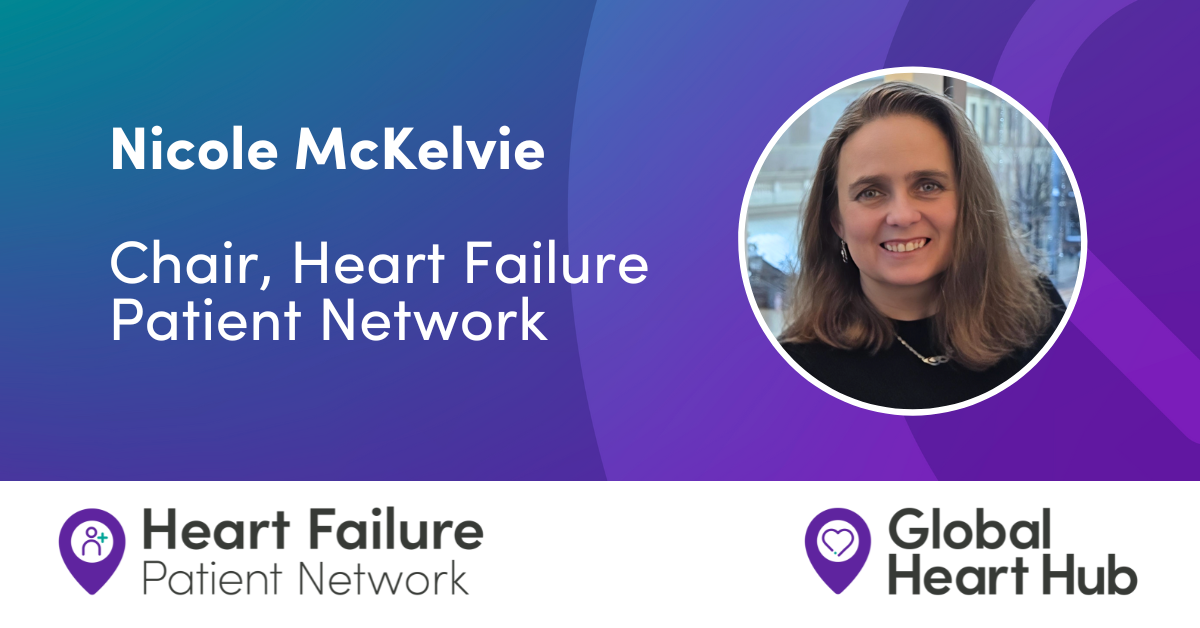Global Heart Hub’s Insights from Patients living with Elevated Cholesterol reveals the Importance of Shared Decision-Making
- Community-led research by Global Heart Hub points at shared decision-making being critical when patients face their hypercholesterolemia diagnosis
- Patient community argues that putting more focus into that first discussion could change the course of ASCVD, the leading cause of mortality worldwide
- New findings from multi-national patient research around managing unhealthy cholesterol are presented during ESC 2024
GALWAY, Ireland, September 2, 2024 – The European cardiovascular disease community is championing a shift towards personalised cardiovascular care. Central to this shift is the importance of the first conversation between a patient and a healthcare professional (HCP) following a hypercholesterolemia diagnosis. This discussion should become the starting point of an individualised cardiovascular care plan.
A recent study by Global Heart Hub, the international alliance of heart patient organisations, involving patients with high LDL-C (low density lipoprotein cholesterol) levels from Brazil, Australia and the US aimed to understand the experiences, priorities and needs of individuals with dyslipidemia. The findings provide valuable insights into how HCPs can deliver personalised care through shared decision-making.
Participants have highlighted the importance of personalised care plans in managing hypercholesterolemia. Using simple language and clear explanations of the risks associated with unmanaged LDL-C cholesterol level encourages patients to take their health seriously. A collaborative and supportive approach between HCPs and patients is needed to develop care plans, considering individual circumstances and lifestyle factors, ensuring realistic and measurable goals. Discussions on treatment options should focus on patient preferences such as convenience related to the mode and timing of administration. The ultimate goals described by participants are to improve health outcomes, prevent heart-related complications and maintain or enhance quality of life.
The study also identified structural barriers to effective shared decision-making, including time constraints during appointments, administrative burdens and access issues. Overcoming these challenges will require policy changes driven by partnerships between patient advocacy organisations and medical societies.
Neil Johnson, Executive Director, Global Heart Hub said: “The Insights from Patients living with Elevated Cholesterol (IPEC) research emphasises the necessity for comprehensive and direct communication between doctor and patient. When it comes to a diagnosis, the initial interaction with your healthcare provider is particularly important. Our empirical data indicates that this dialogue significantly impacts patients’ cardiovascular health. To put it succinctly, it has the potential to alter the disease journey.”
Professor Kornelia Kotseva, Honorary Professor of Preventive Cardiology at the University of Galway added “I’ve seen firsthand how personalised care plans can significantly impact managing high cholesterol. By using clear language and a collaborative approach, we can set realistic goals that fit patients’ lifestyles and preferences. Ultimately, our shared mission is not only to enhance their quality of life but also, quite simply, to save lives.”
More information about IPEC and the ESC poster: http://globalhearthub.org/IPEC
The IPEC data generation program is a pillar of Invisible Nation, Global Heart Hub’s advocacy program created to bring attention to the more than 500 million people worldwide at risk for an ASCVD-related heart attack, stroke, or death1. As part of the evolution of Invisible Nation and supported by the global patient community, a Global Cholesterol Action Plan was created to continue to activate change to address unhealthy cholesterol levels.
Reference:
- Vasan RS, Enserro DM, Xanthakis V, Beiser AS, Seshadri S. Temporal Trends in the Remaining Lifetime Risk of Cardiovascular Disease Among Middle-Aged Adults Across 6 Decades: The Framingham Study. Circulation. 2022;145(17):1324-1338







